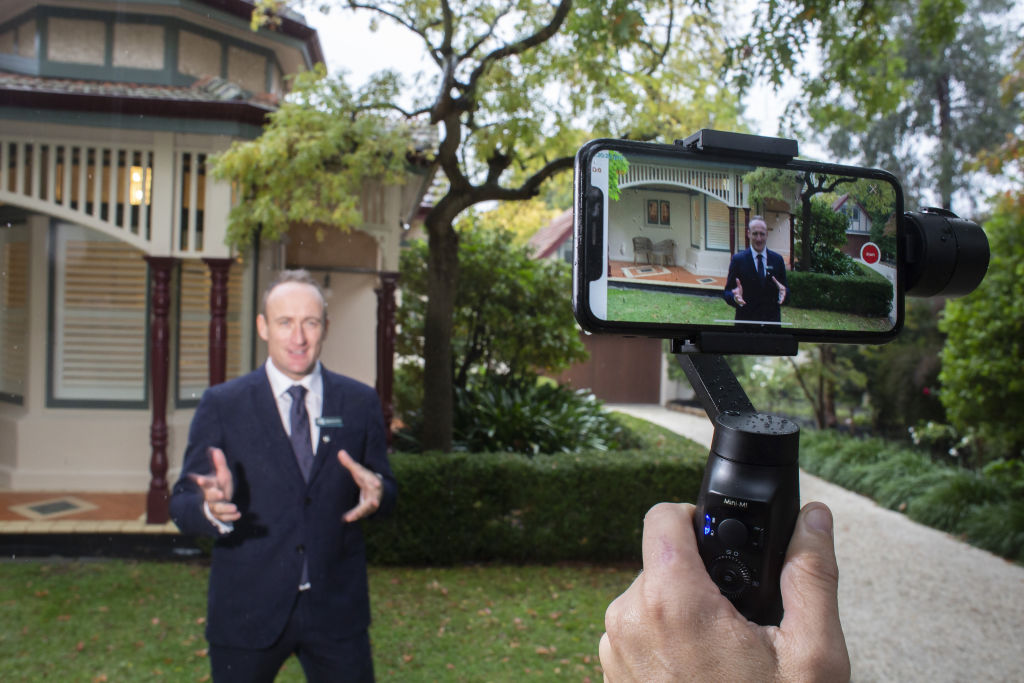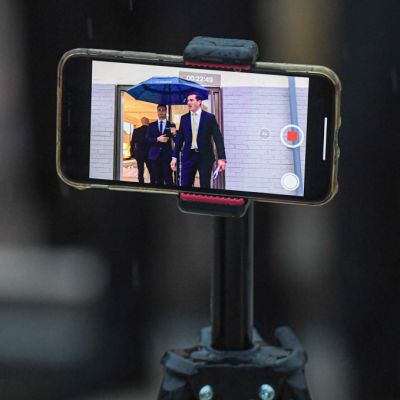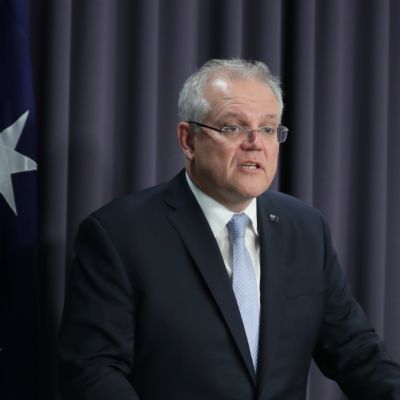Virtual auctions: Why hasn't the take-up been greater so far?

We’ve logged on for Zoom yoga classes and online Bunnings orders, but in the month since public auctions were banned our take-up of virtual auctions has been less enthusiastic.
The real estate industry had just three days’ notice in the last week of March that they would need to adapt the upcoming super Saturday of auctions to use an online method, or move to a traditional private sale. And for the Saturday after, and for the foreseeable future, until the coronavirus pandemic is resolved.
Although agents scrambled to adjust to strict social distancing rules in the interests of protecting the public from the COVID-19 outbreak, private sales quickly came into favour.
The weekend before Anzac Day, almost half of Sydney’s scheduled auctions were switched to private treaty. For Melbourne, it was almost three-quarters, Domain figures show.
Online auctions are going ahead and getting results – some are drawing strong competition or high premiums over the reserve price – but unexpected teething issues have emerged beyond making sure the camera is on or finding buyers in an uncertain economy.
For one, making sure buyers understand how it will work.
“It’s got less to do with the sellers’ confidence in the process and more to do with agents’ confidence in the process,” The Agency chief auctioneer Thomas McGlynn said.
“A high degree of how the auction is going to play out is actually set up with the educational process of the buyers well before the auction day.”
 Saturday auctions: How will they work now they are all online?
Saturday auctions: How will they work now they are all online? Sydney and Melbourne auctions: Harbourside apartment fetches $2,072,000 after marathon bidding war
Sydney and Melbourne auctions: Harbourside apartment fetches $2,072,000 after marathon bidding war Real estate auctions banned from midnight Wednesday in coronavirus crackdown
Real estate auctions banned from midnight Wednesday in coronavirus crackdown Online auctions: Bondi Beach deceased estate sells for $865,000 after dozens register
Online auctions: Bondi Beach deceased estate sells for $865,000 after dozens register
Traditionally, an auctioneer could wait until the day of the auction to communicate with buyers about the process. Now, as they are not in the same physical location, this must be done prior, he says.
Preparation is key: he urges agents to educate buyers early, pre-register them at least 24 to 48 hours prior, discuss whether they have a strategy and check they are comfortable with how it will work. Otherwise, he warns that the online bidding environment may not get a result.
In recent days, he has started to see more vendors requesting online auctions as they notice the method getting results elsewhere.
Another stumbling block amid the weakening economy has been the unconditional nature of an auction purchase, which does not allow buyers a cooling-off period if something goes wrong.
Property Home Base founding director Julie DeBondt-Barker, who focuses on first-home buyers, handled five purchases in the past fortnight and all were via private sale.
“The banks are all over the place with lending at the moment, and the buyers get nervous,” she said.
“If they have the choice, they would prefer to go in with a condition, subject to finance, and if you have an auction you can’t do that.”
She has seen two-week loan approval times blow out to almost a month, meaning potential buyers don’t have approval even in the week before a scheduled auction, but still want to press ahead with a condition.

And what of the emotional connection felt at auction by a hopeful buyer standing out the front of a home they’d like to own?
“It doesn’t potentially have that same level of emotional attachment, not being on the property,” Mayfield Property Buyers’ John Carew said.
Of course, some auctions would traditionally be held in rooms anyway, and different agents used different methods, he added.
“Some prefer it to be on the property because it reinforces that physical connection to the place they’re purchasing.”
He also raises the question of transparency: depending on the virtual platform, buyers can’t always see who they’re bidding against.
“I’m not saying there’s been a rise in dummy bidding,” he cautions. “[But in person,] you’ve got that social proof, where in an online environment you don’t have that.”
Nicole Jacobs, of the eponymous buyer’s agency, has also fielded questions such as, “How do I know the people in the auction are real?” And, “Are they dummy bidders?”
“Sometimes we’re hearing the auctioneer is the only one you can see so you don’t know if you’re bidding against anybody else,” she said.
“We’re doing a lot more expression of interest campaigns, and private sales.”
Making everybody register to bid could be one way to help, she suggests.
Other agents have deliberately switched to platforms that allow buyers to see each other such as Google Hangouts or Zoom, so they realise the real extent of their competition – still as many as six bidders for some homes.
McGrath Box Hill principal Ripple Wu is qualifying buyers before they are able to bid and checking IDs to ensure a real person is bidding.
“They need approval to bid,” Ms Wu said.
The flip side is that people who might usually turn up and bid at the last minute are now unable to.
“The emotional price or the cream on the cake, that’s not happening at the moment,” she said.
Propertybuyer.com.au chief executive Rich Harvey said as well as a shift to private sales, listings were also moving off-market, where there was no public set sale date.
“The driver for an off-market transaction is the vendor is probably being more opportunistic,” he said. “It’s like saying, ‘I know the market sentiment is down, but I’m willing to sell if you can bring me a buyer at this price’.”
With Melissa Heagney
We recommend
States
Capital Cities
Capital Cities - Rentals
Popular Areas
Allhomes
More







